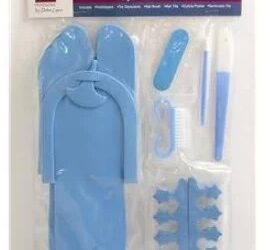How to Handle Car Accident Claims When Both Drivers Share Fault?

Car accidents can be overwhelming, especially when both drivers share fault in the incident. This is referred to as a “shared fault” or “comparative negligence” situation, and it complicates the process of determining responsibility for damages. When two or more parties are involved in an accident, establishing the degree of fault becomes crucial. Insurance companies, courts, and lawyers use various methods to determine how much each driver is responsible for the accident. If you’re involved in such a scenario, it’s essential to understand your rights and responsibilities.
This blog will guide you through handling car accident claims where both drivers share fault. It will provide valuable insights into navigating the legal processes, working with your insurance, and securing fair compensation with the help of a car accident lawyer in North Carolina.
1. Understanding Comparative Negligence in Car Accidents
When both parties share fault in a car accident, the legal concept of comparative negligence is often applied. Comparative negligence allows courts to divide fault between both drivers based on their degree of responsibility for the accident. This means that even if you are partially at fault, you can still recover compensation for your injuries or damages, but it will be reduced by your percentage of fault.
This system ensures fairness and takes into account the specific circumstances surrounding the accident. However, laws surrounding comparative negligence vary by state, so it’s important to consult with a car accident lawyer to understand how the law applies in your area.
Key Points:
- Pure Comparative Negligence: You can recover damages even if you are mostly at fault, but the compensation will be reduced by your percentage of fault.
- Modified Comparative Negligence: If you are more than 50% at fault, you cannot recover damages.
- Contributory Negligence: In some states, if you are even 1% at fault, you may be unable to recover compensation.
Understanding how comparative negligence works in your state will help set expectations for your claim and compensation.
2. The Role of Insurance Companies in Shared Fault Claims
In cases where both drivers are at fault, your insurance company and the other driver’s insurer will typically share responsibility for covering damages. However, insurance companies often use their own investigations and assessments to determine the degree of fault. This can lead to disagreements or delays, especially if both parties blame each other.
It’s important to notify your insurance company promptly after an accident and provide them with as much information as possible. They may conduct their own investigations to determine the extent of each driver’s fault. Sometimes, the insurance companies will negotiate a settlement, but in other cases, the issue may need to be resolved in court.
Key Points:
- Insurance companies assess fault using police reports, witness statements, and accident evidence.
- Your own insurance may cover part of the costs, depending on your coverage type.
- Disputes over fault can lead to prolonged claims and legal action.
Working closely with your insurance provider and a lawyer will help ensure a smoother claims process and protect your rights.
3. How Fault is Determined in a Shared Fault Car Accident
Determining fault in a shared fault accident typically involves gathering evidence and considering the actions of both drivers. The more evidence you have, the better your chances of proving your case, whether you are seeking compensation or defending against claims.
Key pieces of evidence include the police report, traffic camera footage, photographs of the scene, and witness statements. Both parties involved in the accident must share their perspectives, and experts may be called in to provide professional opinions on the cause of the accident. A car accident lawyer can help you gather evidence, protect your rights, and determine the extent of fault you hold in the incident.
Key Points:
- Evidence such as police reports and witness statements play a crucial role in determining fault.
- Professional accident reconstructionists may be used to assess the situation.
- A car accident lawyer can assist in compiling the evidence.
Having the right legal support during this stage is critical to ensuring a fair determination of fault and ensuring that your claim is handled properly.
4. The Importance of Hiring a Car Accident Lawyer in Shared Fault Cases
Navigating a shared fault car accident claim can be complicated, especially when both drivers point fingers at one another. A skilled car accident lawyer can be a valuable asset in such situations, helping you understand your legal options and ensuring you are not unfairly penalized for the accident. Lawyers are trained to evaluate the evidence, identify key witnesses, and interpret the law surrounding shared fault claims.
Moreover, car accident lawyers often work with insurance companies on your behalf, which can help avoid delays or disputes. They can also represent you in court if necessary. This professional support is crucial, especially when you need to secure fair compensation for your injuries or property damage.
Key Points:
- A lawyer helps navigate complex legal processes and insurance negotiations.
- Legal representation can increase the likelihood of a fair settlement.
- Lawyers know how to handle disputes over shared fault claims effectively.
With a car accident lawyer by your side, you can rest assured that your claim will be handled with expertise and care.
5. How to Document Evidence for Your Car Accident Claim
When dealing with a shared fault car accident, one of the most important things you can do is document everything related to the incident. Proper documentation can be the key to a successful claim, especially if there is disagreement about fault.
Start by taking photographs of the scene, including vehicle damage, skid marks, road conditions, and any visible traffic signs. Collect the contact information of witnesses and request a copy of the police report. Additionally, write down your recollections of the accident as soon as possible while the details are fresh in your memory. This documentation will support your claims and provide vital evidence if the case goes to court.
Key Points:
- Take photos of the scene, vehicles, and any damage.
- Obtain witness information and request a copy of the police report.
- Document your recollection of the accident immediately.
Documenting the incident thoroughly can significantly impact your claim, helping prove your case whether you are pursuing damages or defending your actions.
6. Navigating Legal Action When Both Drivers Share Fault
If the dispute over fault cannot be settled through insurance negotiations, it may be necessary to file a lawsuit. In a shared fault car accident, both drivers may be entitled to compensation, but the amount will be adjusted according to each party’s percentage of fault. Courts use comparative negligence rules to determine the compensation each party should receive.
Your lawyer can assist in determining whether pursuing legal action is the best route or if a settlement can be reached. If you do take the case to court, both parties will present their evidence, and a judge will determine the allocation of fault and compensation.
Key Points:
- Legal action may be necessary if insurance negotiations fail.
- Courts use comparative negligence to assign fault and compensation.
- Your lawyer will guide you through the litigation process.
Involving a lawyer is crucial to navigating the legal complexities of a shared fault car accident claim. With their help, you can work toward a fair and equitable resolution.
Final Remarks:
Handling car accident claims when both drivers share fault can be a challenging experience, but understanding the legal processes and having the right support can make all the difference. From understanding comparative negligence to working with insurance companies, documenting evidence, and seeking legal advice from a skilled car accident lawyer in North Carolina, you have options to ensure that your claim is fairly handled. Don’t let the complexities of shared fault deter you—take action to protect your rights and secure the compensation you deserve.









